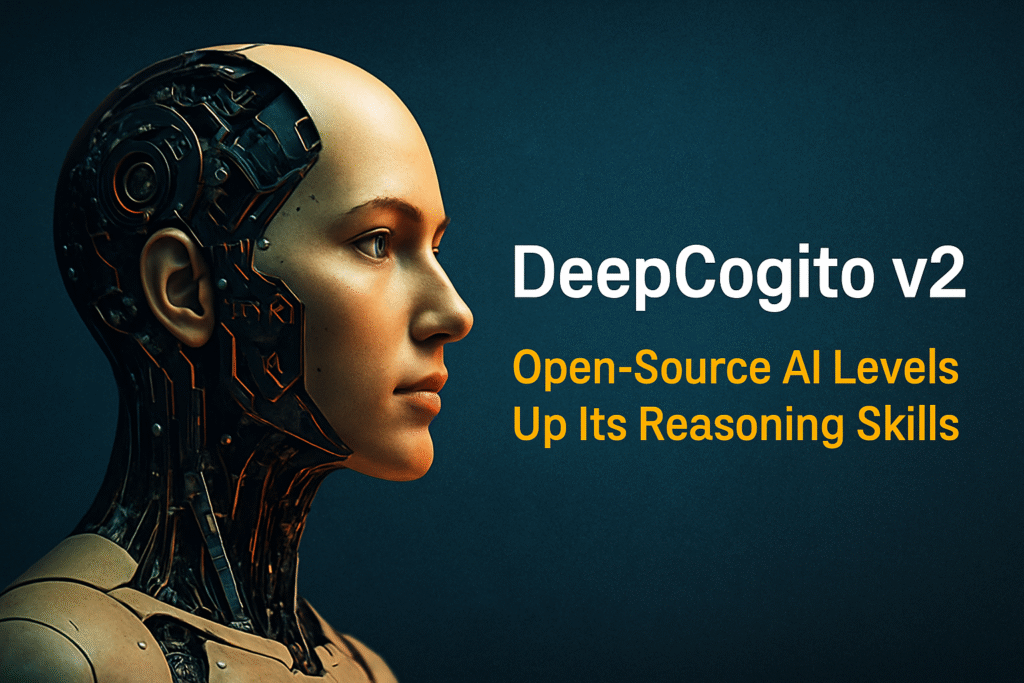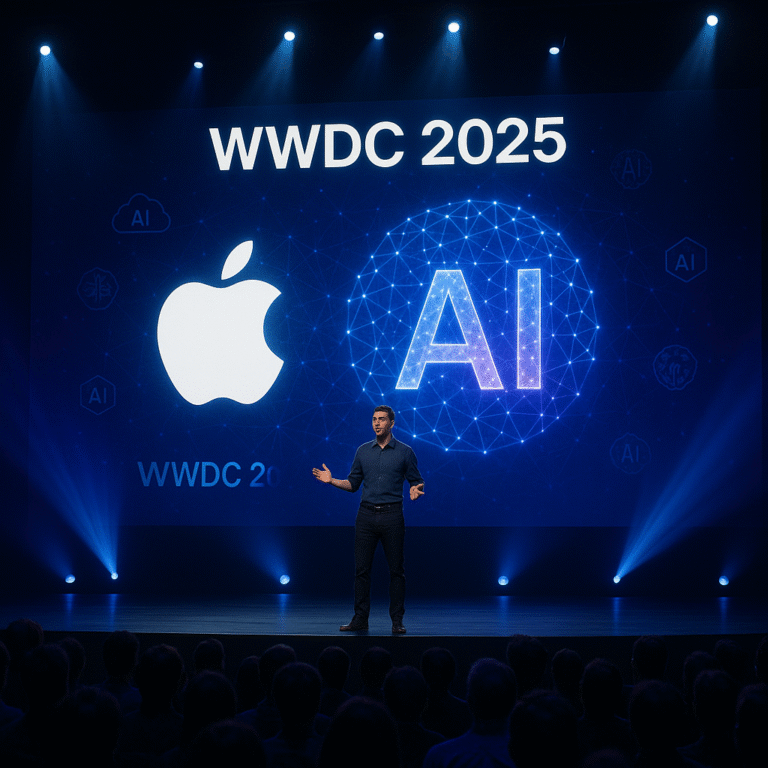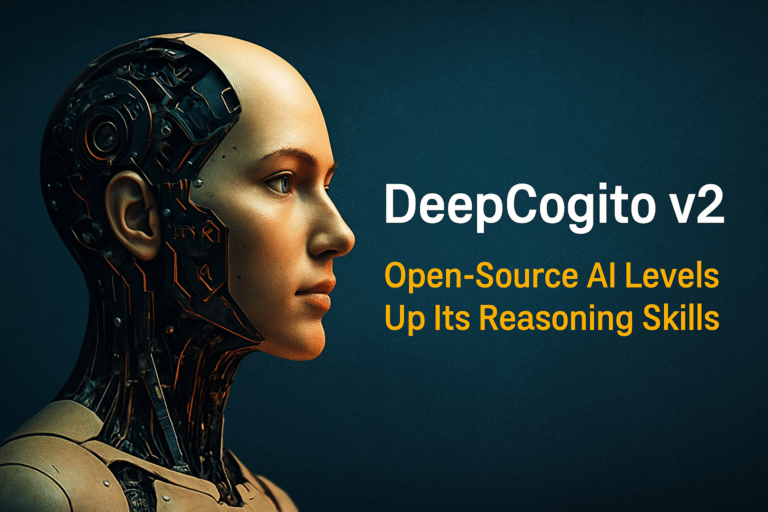
In the rapidly evolving AI landscape, where models grow increasingly fluent and complex, DeepCogito v2 stands out for a different reason: it doesn’t just talk — it thinks. This newly enhanced open-source AI model is setting a new standard for reasoning, logic, and contextual depth in machine intelligence.
📌 Inspired by reporting from Artificial Intelligence News
What Makes DeepCogito v2 Special?
Unlike many models that excel in language generation but falter when asked to explain why something is true, DeepCogito v2 introduces a more refined approach to AI logic. Its reasoning engine integrates neuro-symbolic architectures — meaning it can handle symbolic logic while leveraging deep learning for nuance and adaptability.
So instead of guessing or bluffing through complex queries, it evaluates, deduces, and adapts its answers across multiple reasoning layers.
Open-Source with Serious Intelligence
One of DeepCogito v2’s core strengths is its open-source foundation. Not only does this allow transparency and community collaboration, but it opens the door for deep customization across industries — from legal AI tools to healthcare diagnostics.
Developers can modify reasoning modules, fine-tune domain knowledge, or experiment with hybrid architectures — all while benefiting from the community-driven improvements.
💡 If you’re looking to explore more open-source AI models, check out our article: Artificial Intelligence News
How It Performs
When I looked into DeepCogito v2’s performance, the results stood out. In benchmark tests, it didn’t just handle multi-hop reasoning or causal inference—it actually managed to keep its logic clear and consistent, even during more complex, extended interactions. Compared to other open-source models I’ve seen, DeepCogito v2 seems to reduce hallucinations and maintain coherence, which is a big deal for anyone relying on AI for tasks that demand real understanding. This makes it especially promising for fields like legal assistance or academic research, where reliable reasoning is crucial.
This makes it a serious contender for applications requiring deeper understanding:
- Legal AI assistants
- Academic research copilots
- Logic-based educational tools
- Ethical and philosophical reasoning systems
Why This Matters Now
As we push toward more autonomous systems — whether in finance, law, education, or governance — it’s not enough for AI to speak convincingly. It must reason responsibly.
DeepCogito v2 may not have the flashiest interface or the biggest budget behind it, but it’s quietly reshaping how we think about AI intelligence: less performance theater, more critical thinking.
Conclusion
DeepCogito v2 doesn’t just represent progress in open-source AI — it represents a philosophical shift. Toward transparency, collaborative innovation, and, most importantly, machines that understand the why behind their answers.
If you care about the future of trustworthy, thoughtful AI, this is a project worth watching — or better yet, contributing to.




I needed to put you this very little remark just to thank you so much again relating to the gorgeous principles you’ve provided on this website. It has been pretty generous with you to present unreservedly all a lot of folks would have sold as an e-book to earn some cash for their own end, principally since you could have done it if you wanted. These guidelines in addition served like a easy way to be sure that someone else have the same dreams much like mine to understand good deal more when it comes to this condition. I am certain there are millions of more enjoyable times up front for individuals who browse through your blog.
I got what you mean , regards for putting up.Woh I am pleased to find this website through google.
**mitolyn reviews**
Mitolyn is a carefully developed, plant-based formula created to help support metabolic efficiency and encourage healthy, lasting weight management.
**aquasculpt**
aquasculpt is a premium metabolism-support supplement thoughtfully developed to help promote efficient fat utilization and steadier daily energy.
**prodentim**
ProDentim is a distinctive oral-care formula that pairs targeted probiotics with plant-based ingredients to encourage strong teeth, comfortable gums, and reliably fresh breath
**mounja boost**
MounjaBoost is a next-generation, plant-based supplement created to support metabolic activity, encourage natural fat utilization, and elevate daily energywithout extreme dieting or exhausting workout routines.
**herpafend official**
Herpafend is a natural wellness formula developed for individuals experiencing symptoms related to the herpes simplex virus. It is designed to help reduce the intensity and frequency of flare-ups while supporting the bodys immune defenses.
**men balance**
MEN Balance Pro is a high-quality dietary supplement developed with research-informed support to help men maintain healthy prostate function.
**prostafense**
ProstAfense is a premium, doctor-crafted supplement formulated to maintain optimal prostate function, enhance urinary performance, and support overall male wellness.
**boostaro**
Boostaro is a purpose-built wellness formula created for men who want to strengthen vitality, confidence, and everyday performance.
**neurosharp**
Neuro Sharp is an advanced cognitive support formula designed to help you stay mentally sharp, focused, and confident throughout your day.
**back biome official**
Mitolyn is a carefully developed, plant-based formula created to help support metabolic efficiency and encourage healthy, lasting weight management.
Very good blog! Do you have any recommendations for aspiring writers? I’m planning to start my own site soon but I’m a little lost on everything. Would you propose starting with a free platform like WordPress or go for a paid option? There are so many choices out there that I’m totally overwhelmed .. Any recommendations? Bless you!
I love your blog.. very nice colors & theme. Did you create this website yourself? Plz reply back as I’m looking to create my own blog and would like to know wheere u got this from. thanks
Hmm is anyone else encountering problems with the pictures on this blog loading? I’m trying to find out if its a problem on my end or if it’s the blog. Any feedback would be greatly appreciated.